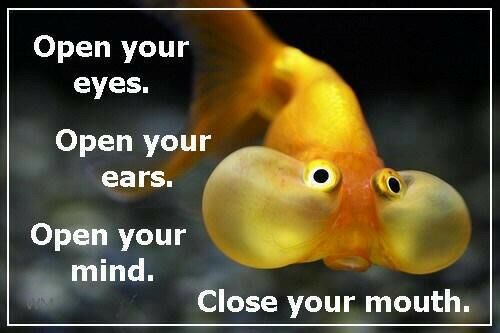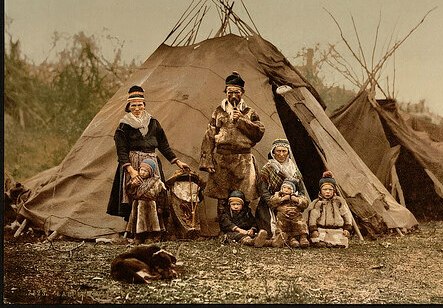Tips, strategies, approaches, attitudes and ways to support a person living with disability in particular brain injury
Often the focus for a person living with brain injury is on managing the physical and cognitive effects, not noticing changes in emotions after brain injury. It is easy to overlook the emotional ups and downs that come with such a major change to your life. Each week I look forward to wonderful emails from people all over the world in response to these articles. One email I received this week prompted me to think about the many conversations I have had over the years, with people up against their own reactions, responses and emotions after brain injury, along with those of their family and friends. The letter (yes it was an email, but I like to think of them as letters) was about the struggle to understand, and live with the life changes, that come with brain injury. The emotional roller coaster. I am not talking about the emotional changes that happen because of damage to the brain. I am talking…
Learning about brain injury through stories helps deepen our understanding of brain injury:[unordered_list style="green-dot"] the cognitive outcomes, the physical and behaviour changes, and the life changing impact of brain injury on each person. [/unordered_list] The Beginning I was driving my daughter to school recently, she was doing some last minute study for a test on electricity and wanted my help. I confessed to her, that most of what she was studying, I had no understanding of, and it all felt very confusing. She then explained what she had been learning, giving real life examples of the concepts in action; telling a story about electricity. It made it real and understandable for me. Thinking about this experience and the importance of stories coincided with a couple of weeks of finding all sorts of exciting stuff about brain injury. When I looked at the path I had taken, it began and ended with stories. I had learned more about the nature of brain injury…
Last week I talked about about disinhibition after brain injury; possible causes, and what you might see. Today, still focussed on disinhibition, I have collected a list of strategies that might be helpful. The tips and strategies below are grouped under a set of principles. Having a set of principles is like the foundation, or the pillars, upon which you can build good support. Four reminders before you make any changes:[ordered_list style="decimal"] Discuss strategies and ideas with the person you are supporting, their family and treating team, to decide what suits best. Start with strategies and changes the person is interested in. Try not to change too much, all at once. [/ordered_list] Think B -E- C- A- U- S- E BECAUSE is a set of principles that can help you build a list of actions to ensure you work successfully; with humanity and respect. They are the pillars that support and guide what you do. Today I am applying these principles to…

Image source not known. Found Quote Lovers
A starter kit for supporting family after brain injury. Here are four simple actions that you can practice to better support family after brain injury, with compassion and empathy. Over the past couple of posts I have talked about being alongside family after brain injury. Firstly the responses and reactions family members might experience and then about responding with empathy and compassion. How can you put this into practice? It can seem so overwhelming when you begin. Think Open Ears, Open Eyes, Open Mind, and Closed Mouth The following are some tips for how you can begin to offer relevant support to a family after brain injury: OPEN EARS Listen closely to what each family member is telling you about their own experience and the impact on their family after brain injury. Listen as they talk about their needs, and what you can do to best support them. Listen, and let the family know you are hearing and understanding them. Acknowledge that…

Image from Library of Congress
How do we understand family support after brain injury, when we are all different? Each of our families work differently, whether a family member has experienced a major trauma, such as brain injury, or not. Last week, the discussion was about the responses and reactions family might have when a family member has a brain injury. Understanding this, is a starting point to having a family sensitive approach to family support after brain injury. Now we can discuss how we provide family support after brain injury, when not only each family is different, brain injury is different in every person. Compassion and Empathy How to best support family after brain injury? Compassion and empathy, are great foundations. I believe both these words are very misunderstood in our world today, they seem to be seen as soft, or weak. We will talk more about them in the future. For now, in very simple terms: Compassion is well described in the principle “do unto…
As a first step to working well alongside a family after brain injury, begin by imagining. Imagine the possible effects of a major life changing event (such as brain injury) on a family. On each family member. Think about each family member dealing with a range of different emotions, responses and reactions, at different stages for different lengths of time. Before we talk more about what happens after brain injury, here is a short clip that talks a bit about family after brain injury. Understanding Possible Reactions and Responses: Family After Brain Injury As supporters we can assist by being aware, and respectful of what individual family members may be experiencing. What are some of the many different responses and reactions you might see? Grief Each change and adjustment to a family member’s role or relationship can bring new feelings of grief. Family events (even happy ones) and traumatic news events can trigger grief and reminders of loss for instance birthdays, anniversaries,…
A number of things happened this past week that lead me to this discussion today about exercise and the brain. I have been in New Zealand visiting my family. My mother had saved a collection of resources about brain injury and dementia for me. One was a booklet entitled “Exercise and the Brain. The New Science of Brain Health”, published by the Neurological Foundation of New Zealand. Walking and Thinking I had flicked through the booklet, just before I went on a long, strenuous and very beautiful walk, through the amazing bush, of the Coromandel Peninsula – which is where this photo was taken. I was thinking about the booklet as I walked. Sometimes, when we are learning about the brain, and how to best care for the brain, we focus on caring for another person’s brain. We need to remember to look after our own brains as well. Based on research becoming available there are a number of things we can…
Model...Cue...Prompt...Structure... Words that form part of the foundations of good solid strategies for people living with brain injury. Just some of the words you will hear and read about. What do these words mean in real life? I was thinking about this when I recently found some rough, handwritten notes containing these words I had made some time in the past. More than likely at a conference on brain injury. Unfortunately, while I thought the notes were useful, there was no source, person, or date noted on the page. Oh dear, common failings of mine, along with a complete inability to keep time logs, or task records. No patience for detail! “APPROACHES" My scrawled notes were headed “APPROACHES” and though only a few words I thought I would share and talk about them. I believe they are helpful to understand more about implementing strategies for people with brain injury, in day to day life. Firstly as an introduction here is exactly…
Attention and concentration are cognitive (thinking) tools that allow us to choose to focus on something, and stick at it to the end. While doing this, we can be taking notice of some things, and ignoring others. I might read a letter, while listening to music but ignore the noise of my children playing; I might be listening carefully to what someone is saying, while ignoring other conversations in a room. Attention means we choose what is important for us to focus on at any moment. Concentration is what enables us to focus our attention for long enough to complete the tasks we wish to. Last week I made a rather long attempt at 'summarising' the working of the brain. I hope this sets the scene for understanding more about how cognitive abilities, like attention and concentration, are used in the work of our brain. And what happens with cognitive changes, after brain injury. Attention, or attending to information, and concentrating on…
“Finding your voice.” Writers do it. Actors do it. Singers do it. Bloggers do it. Brain injury supporters do it. Wait… do they - why would they? What has finding your voice got to do with supporting a person with brain injury? I had not really thought about it in this way before. I got to thinking about "our voice" being the way we communicate: our words, expression, body language, tone, the way in which we present ourselves. This thinking all began when I decided I wanted to establish a blog, well this blog actually! Knowing very little about online communication I began to learn all I could. In my reading I discovered there was a lot about “finding your voice”; one that can be heard amongst the 156million+ other voices out there. One that is authentic and your own. That might sound simple, and maybe for some lucky writers it is. I have spent (and continue to spend) many thoughtful hours,…

